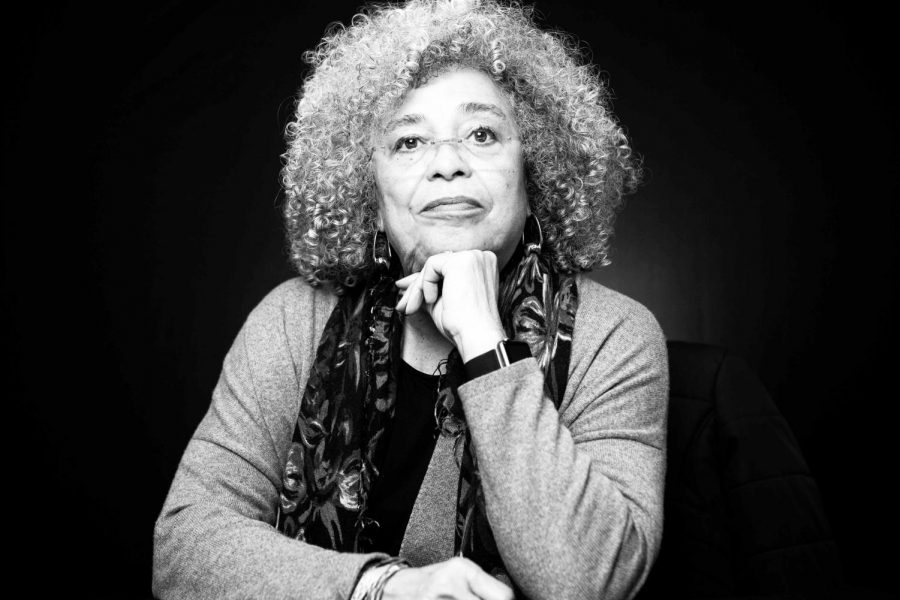Angela Davis kicks off Power & Privilege 2020
Angela Davis opened Power & Privilege 2020 with a keynote speech on injustices in America. Photo contributed by Gotham Artists
February 27, 2020
This year’s keynote speaker for the Power & Privilege Symposium was Angela Davis. Davis is known for her work as a political activist as a member of the communist and Black Panther parties. In 1970, she served around 18 months in jail for one of her activist efforts that ended in an acquittal. Davis has written over ten books and has become an educator teaching at different universities across the country, including most recently, the University of California – Santa Cruz.
Davis opened the symposium with an hour-long lecture and short question and answer session at 6:30 p.m. on Feb. 19. Cordiner Hall hosted members of both the Whitman and Walla Walla communities for the lecture.
Manon Halle, a sophomore philosophy and gender studies double major, commented on the accessibility of Davis’s presentation.
“It was cool to see so many community members, not just from Whitman,” Halle said. She was so actively engaged with everyone. It was such an honor to have her here.”
Andrew Peterson is a sophomore psychology and philosophy double major. Peterson shared his perspective on Davis’s talk as a student currently taking a class at the prison.
“I have been very woken up to the issues in the prison system and am actually probably going to be working at the prison this summer,” Peterson said. “The talk was everything I could’ve hoped for and more.”
Blythe Eickerman, a junior politics major, discussed her appreciation towards Davis making a connection to what she is learning at Whitman.
“It was really interesting because in my queer politics and policy class with Professor Beechey we’re also talking about how things can’t be just single-issue politics,” Eickerman said. “We have to look at things as they all intersect and there can’t just be one prominent issue. So, I think what she was saying at the end really resonated.”
When asked what point in the talk was most influential to them, many Whitman students had different answers. Sophie Leibsohn, an undeclared sophomore, commented on restructuring the idea of punishment, a concept she had previously discussed in her politics class.
“The idea that we need to restructure the sentiment of… punishment to shape it into rehabilitation instead,” Leibsohn said. “Like even the death penalty, as a thing, is based on the idea of punishment. It’s not rehabilitation because you can’t rehabilitate a dead person.”
Peterson shared what he found most interesting about the talk relating to class structure.
“What she ended up saying at the end about how we need to help everyone… instead of just focusing on individual groups of people really stuck,” Peterson said. “We need to help everyone who is being affected by poverty and all these different systems of class.”
Davis’s talk emphasized the idea of injustice in the prison system in America. Her words were also a call to action to the Whitman and Walla Walla communities to recognize privilege where it is present and fight against the root causes of injustice.





